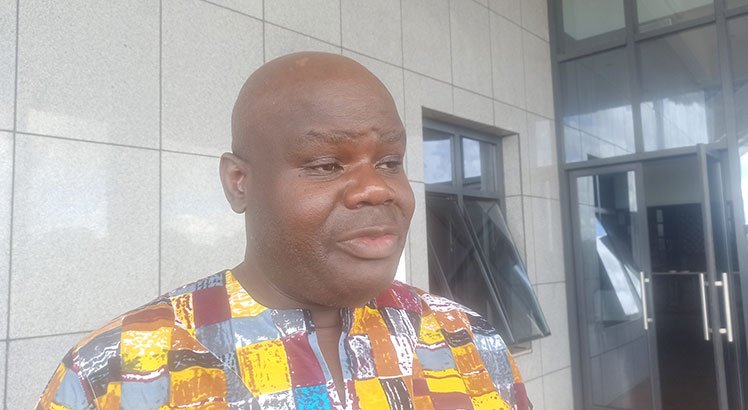Experts speak on absence ofRegistrar of Political Parties
With just 20 months to the 2025 General Elections, government is yet to hire the Registrar of Political Parties (RPP)after establishment of the new Political Parties Act of 2018.
The new law, which took effect on December 1 2018, prescribes a new process of registering political parties, outlaws handouts and compels parties to disclose funding sources.

In the absence of the RPP, the Registrar General doubles as the Registrar of Political Parties, but a political analyst observes that even if some functions can be exercised by others in an acting capacity, they will not be able to exercise full powers.
In an interview yesterday, University of Malawi senior lecturer in political science Boniface Dulani described the position of Registrar of Political Parties as “very crucial”, saying there can only be one holder who exercises the powers of the office, and in the case of a vacancy, the office remains non-functional.
He said: “The continued vacancy will create challenges in the registration of new political parties, which is likely to become necessary as we approach the 2025 elections. More importantly, the office plays many other roles under the law, including enforcement of the Political Parties (Registration and Regulation) Act.”
Dulani, who is also a research associate of Institute for Democracy, Citizenship and Public Policy in Africa at the University of Cape Town in South Africa, further observed that the enforcement of the part of the law that bans handouts during elections cannot be fully-enforced in the absence of the office holder.
In August this year, government advertised for the position of RPP and, according to Ministry of Justice spokesperson Frank Namangale, shortlisting was done and names were submitted to the Civil Service Commission for interviews.
In an interview on Tuesday, Namangale said the Ministry of Justice will be advised of the interview date.
In his ministerial statement during the 2nd Meeting of the 50th Session of Parliament, Minister of Justice Titus Mvalo said the culture of handouts exposes politicians to corrupt and unscrupulous financiers whose support, candidates or political parties are uncomfortable to acknowledge and, therefore, declare in accordance with the Political Parties Act.
The minister informed the House that the office of Registrar General has neither the resources nor capacity to effectively execute the functions that the office of RPP is expected to perform.
Said Mvalo: “There is, therefore, abundant political will to ensure that the Office of Registrar of Political Parties is operationalised so that it can play its rightful role in ensuring a level playing field in the 2025 elections and onwards.”
Centre for Multiparty Democracy executive director Kizito Tenthani, in an earlier interview, said the establishment of the Office of the Registrar of Political Parties shows the political will that as a country we are now serious about regulating political parties.
“This will ultimately ensure that the political parties that we have are really discharging their mandate, within the confines of the law,” he said.
In July and September 2021, Malawi Law Society (MLS) asked the Registrar General for a list of political party financiers amid fears that parties were captured by businesspersons who look to benefit once the parties are in power.
But the registrar did not provide the information, prompting MLS to apply to the High Court for a judicial review of the decision.
The High Court, on May 19 2022, granted the MLS permission to apply for the judicial review.
In October 2022, the High Court dismissed an application by the Registrar of Political Parties to discharge permission for judicial review sought by MLS because it did not pay K20 000 to access the information as required by law.
The four parties mentioned in the MLS letter are Malawi Congress Party, UTM Party, Democratic Progressive Party and United Democratic Front.
Section 27 (2) of the Political Parties Act allows political parties to solicit support from well-wishers, whether individuals or organisations, to finance their activities.
The Act compels political parties to disclose to the Registrar of Political Parties sources of their funding and any donations.





